
Politics
18:15, 20-Sep-2017
Iranian FM: Trump's remarks 'unworthy' for a reply
CGTN
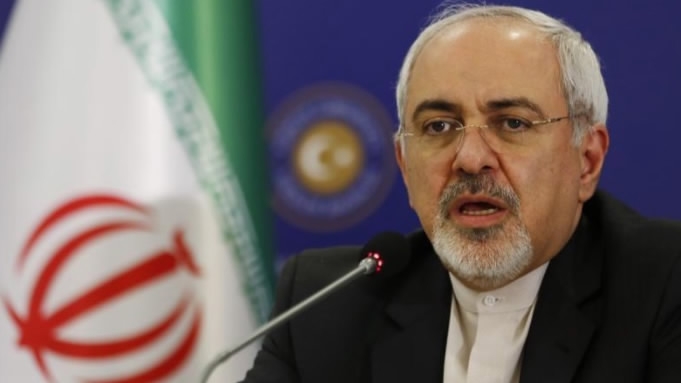
Following US President Donald Trump’s remarks at the annual United Nations General Assembly (UNGA), in which he accused Iran of exporting “violence, bloodshed and chaos," Iran says Trump's words are "unworthy of a reply."
“Trump’s ignorant hate speech belongs in medieval times - not the 21st Century UN - unworthy of a reply,” Iranian Foreign Minister Mohammad Javad Zarif, Iran’s lead negotiator for the nuclear agreement, said on Twitter.
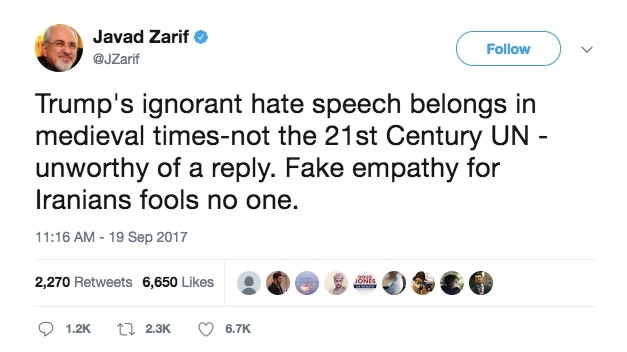
Twitter screenshot
Twitter screenshot
Making his first appearance at the annual meeting, Trump also said the Iran deal was one of the worst and most one-sided transactions in international relations, and "an embarrassment" to the United States.
He further indicated that he may not ratify the deal at its forthcoming mid-October deadline.
How much longer will the deal last?
The US president must certify that Iran is complying with the pact by October 15 - a decision that could sink the deal. If he does not, the US Congress has 60 days to decide whether to reimpose the sanctions waived under the deal.
Trump's chief diplomat, Secretary of State Rex Tillerson, went further, telling Fox News on Tuesday that the agreement must be changed or the United States could not stick with it.
Tillerson said the “sunset” clauses were a particular concern as these include some of the deal’s restrictions on Iran’s nuclear program, which are expire from 2025.
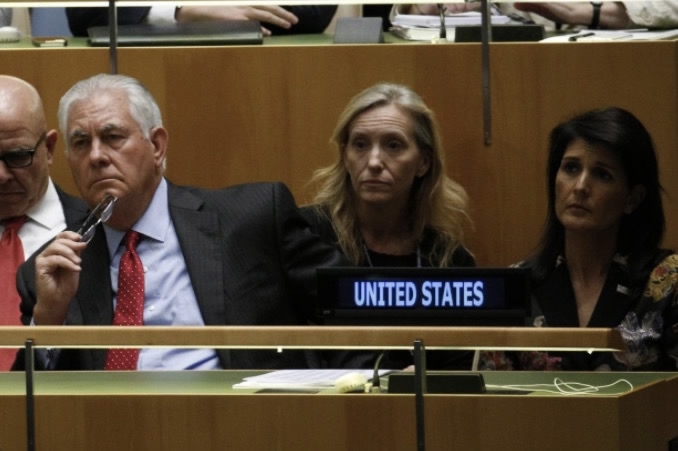
US Secretary of State Rex Tillerson and US Ambassador to the UN Nikki Haley (R) listen as US President Donald Trump addresses the 72nd United Nations General Assembly at UN headquarters in New York, US, September 19, 2017. /Reuters Photo
US Secretary of State Rex Tillerson and US Ambassador to the UN Nikki Haley (R) listen as US President Donald Trump addresses the 72nd United Nations General Assembly at UN headquarters in New York, US, September 19, 2017. /Reuters Photo
“If we’re going to stick with the Iran deal there has to be changes made to it. The sunset provisions simply are not a sensible way forward,” Tillerson said.
Iranian senior officials on Sunday warned against a US "breach" of the nuclear deal and called for Washington's adherence to its relevant commitments.
Iranian President Hassan Rouhani said that he would explain some points about the US misconduct as they relate to Iran's 2015 nuclear deal in his UN speech scheduled for Wednesday.
Leaders clash at Iran's nuclear deal
In contrast, French President Emmanuel Macron praised the agreement during his speech, saying it was inconceivable to abandon it.
“Renouncing it would be a grave error, not respecting it would be irresponsible, because it is a good accord that is essential to peace at a time where the risk of an infernal conflagration cannot be excluded,” Macron said.
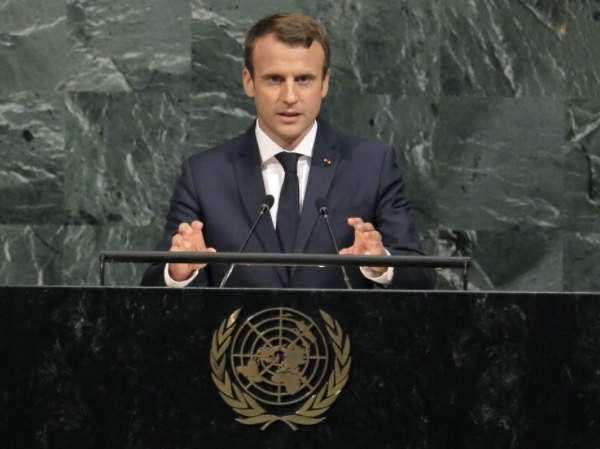
French President Emmanuel Macron addresses the 72nd United Nations General Assembly at UN headquarters in New York, US, September 19, 2017. /Reuters Photo
French President Emmanuel Macron addresses the 72nd United Nations General Assembly at UN headquarters in New York, US, September 19, 2017. /Reuters Photo
The French president said he understood US concerns but thought the way to address them was to open up a negotiation designed to extend limits on its nuclear program beyond 2025.
Macron and other supporters of the accord say weakening or scrapping the deal would add fuel to a regional powder keg and deter the Democratic People's Republic of Korea (DPRK) from negotiating on its nuclear program.
However, Israeli Prime Minister Netanyahu was unsparing in his criticism of the nuclear pact. However, other Israeli officials privately admit that having some restrictions on Iran’s program are better than none.
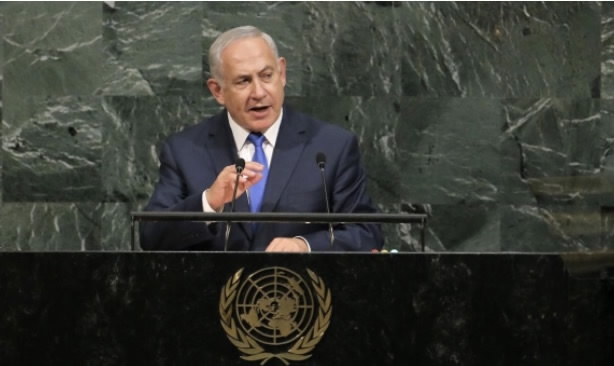
Israeli Prime Minister Netanyahu addresses the 72nd United Nations General Assembly at UN headquarters in New York, US, September 19, 2017. /Reuters Photo
Israeli Prime Minister Netanyahu addresses the 72nd United Nations General Assembly at UN headquarters in New York, US, September 19, 2017. /Reuters Photo
“Change it, or cancel it. Fix it, or nix it,” Netanyahu said in his UN speech, adding the most important change was to eliminate the “sunset” clauses.
According to the Iran nuclear deal - formally known as the Joint Comprehensive Plan of Action (JCPOA) - all nuclear-related sanctions imposed on Iran will be removed if the country is proved to have followed the deal in the next few years.
China has repeatedly emphasized that the nuclear deal plays an important role in upholding the international non-proliferation regime and maintaining peace and stability in the Middle East.
"The JCPOA is an important outcome of international security governance, as well as an example of resolving international hot-spot issues through diplomacy," Chinese Foreign Ministry spokesman Lu Kang said on Tuesday.
The nuclear deal was negotiated with Iran by the United States, Russia, China, Britain, Germany and France. The six will meet with Iran at the ministerial level on Wednesday.
Source(s): Reuters
,Xinhua News Agency

SITEMAP
Copyright © 2018 CGTN. Beijing ICP prepared NO.16065310-3
Copyright © 2018 CGTN. Beijing ICP prepared NO.16065310-3